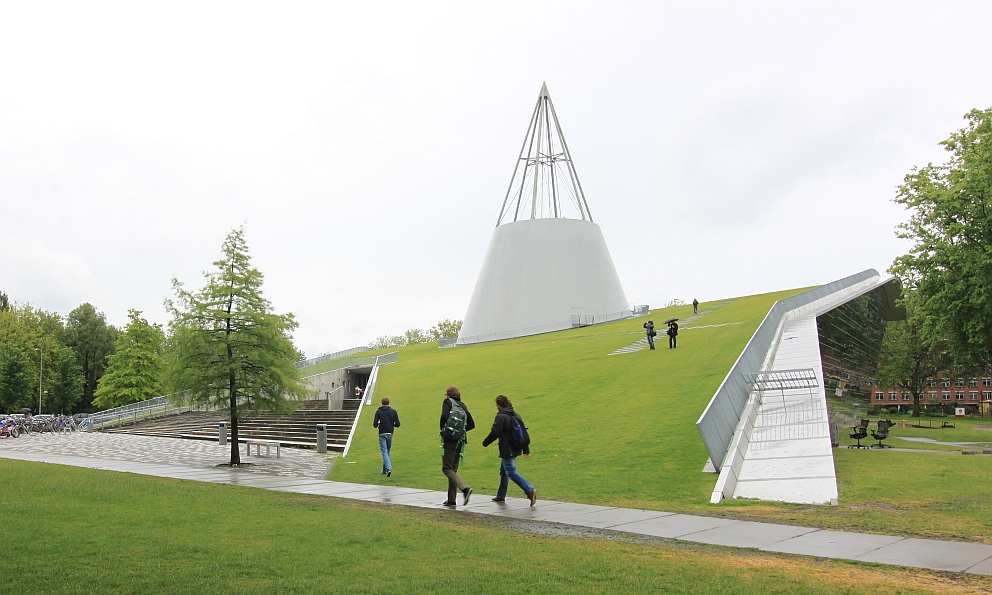Study in the Netherlands — Complete Guide
Academic, practical and immigration information for international students (non-EU/EEA). Numbers are approximate — always confirm on official sites.
Language Study (Dutch & English preparatory courses)

Overview: The Netherlands offers intensive Dutch language courses and English preparatory programs (pre-sessional academic English) for international students. Many universities and private language schools run short intensive courses (weeks) and semester-long preparatory courses that can award ECTS credits.
Typical programs
- Short intensive Dutch — 2–12 weeks; focus on conversation and CEFR levels.
- Pre-sessional English / academic preparation — 1–3 months to prepare for degree-level study (common for non-native English applicants).
- University language centres — semester or year courses that may carry credits and integrate into study pathways.
Costs & typical schedule
| Item | Typical price |
|---|---|
| Short intensive course (per week) | €150 – €400 |
| Full pre-sessional (1–3 months) | €800 – €3,000 |
| Accommodation (student room) | €400 – €900 / month (varies by city) |
Entry requirements
- Valid passport and completed application to the language provider.
- Proof of funds may be requested for long courses (>90 days) if you need a visa.
- Health insurance recommended (required for residence permit applications).
Note: Salamanca-like immersion is possible in smaller Dutch cities with active local language schools — Amsterdam/Rotterdam/Utrecht are pricier for accommodation.
Bachelor’s Degree (Undergraduate)

Overview: Dutch bachelor degrees are typically 3 years (research universities) or 3–4 years for some programs; programmes use the ECTS system. Many bachelor's programmes are offered in English (especially at research universities), but a larger share remains Dutch-taught.
Duration & structure
- Generally 3 years (180 ECTS) for research university bachelor's; some professional (HBO) programmes may be 3–4 years.
- University institutions offer curricula with lectures, tutorials, and exams; practical placements are common in applied programmes.
Tuition fees (approx.)
| Student group | Estimated annual tuition (EUR) |
|---|---|
| EU/EEA (statutory fee) | ~€2,500 – €3,500 |
| Non-EU/EEA (institutional fee) | ~€9,000 – €20,000 (varies by programme & university) |
Admission requirements
- Secondary school diploma equivalent to Dutch pre-university (VWO) — many applicants verify with university admission service.
- Proof of English (IELTS/TOEFL) or Dutch (NT2 / other) depending on language of instruction.
- Translated & certified transcripts, motivation statement, and sometimes entrance tests or interviews.
Living costs (typical monthly)
| Item | Approx. cost |
|---|---|
| Rent (student room) | €400 – €900 |
| Food & groceries | €150 – €300 |
| Transport (monthly) | €30 – €80 |
| Miscellaneous | €80 – €200 |
Tip: tuition for non-EU students is programme-specific — check the exact amount on the university's fees page (example: University of Amsterdam publishes institutional & faculty fees).
Master’s Degree (Postgraduate)

Overview: Master’s programmes commonly last 1–2 years (60–120 ECTS). The Netherlands is known for many high-quality English-taught MSc/MA programmes at research universities.
Duration & formats
- One-year (60 ECTS) or two-year (120 ECTS) master's programmes.
- Full-time, part-time and research masters exist; some are linked to industry projects.
Tuition & estimated fees
| Student group | Typical annual tuition (EUR) |
|---|---|
| EU/EEA (statutory fee) | ~€2,500 – €5,000 |
| Non-EU/EEA (institutional fee) | ~€12,000 – €30,000 (varies by programme & reputation) |
Admission criteria
- Recognised bachelor's degree in a related subject.
- Language proof (IELTS/TOEFL) where required; some programmes require GRE/GMAT or professional experience.
- CV, motivation letter, recommendation letters, and sometimes a research proposal or portfolio.
Funding & scholarships
- University scholarships, Holland Scholarship, Erasmus+ (for some exchange students), and faculty-level grants.
- International students should check university scholarship pages early — many deadlines are months before program start.
PhD Degree (Doctorate)

Overview: Doctorates in the Netherlands are research-focused and normally last 4 years. PhD candidates are often employed by the university on a paid research (predoctoral) contract.
Requirements & application
- Master's degree (or equivalent) allowing doctoral entry.
- Research proposal and match with a supervisor or research group.
- Funding: many PhD positions are advertised as funded contracts; alternative funding via grants is also common.
Costs & funding
| Item | Estimate |
|---|---|
| Tuition / administrative fees | €200 – €2,000 / year (often subsidised) |
| Predoctoral salary (if employed) | Salary ranges depending on position & collective agreements |
| Living costs | €800 – €1,300 / month |
Many research projects are funded by NWO, EU Horizon Europe projects or university research grants — check the faculty vacancy pages for funded positions.
Student Visa & Residence — Step-by-step (non-EU/EEA)

Which permit?
- Short stays (< 90 days): Schengen short-stay visa (if required by nationality).
- Long stays (degree study > 90 days): Residence permit for study (student residence permit) — only the educational institution (recognized sponsor) can apply to IND for you.
Key requirements
- Letter of acceptance from a recognized Dutch higher education institution.
- Valid passport (sufficient validity & blank pages).
- Proof of sufficient financial means (university will specify amount; general guidance: budget for tuition + living costs ~ €800–€1,200/month depending on city).
- Health insurance valid in the Netherlands.
- Completed application & biometric data at the Dutch embassy/consulate or VFS center as instructed.
Application flow (typical)
- Get unconditional offer and confirm enrolment with the university.
- University (as recognized sponsor) submits a request to IND for your residence permit (MVV / TEV procedure where applicable).
- Follow consulate instructions, attend appointment, submit documents and biometrics if required.
- Processing: commonly 2–8 weeks; times vary. Do not book travel until permit is issued.
After arrival
- Register with the local municipality (BRP) and get a citizen service number (BSN).
- Open a Dutch bank account, apply for public transport card (OV-chipkaart), and complete any university enrolment steps.
- Graduates may apply for an orientation year (zoekjaar) residence permit to look for work after graduation (conditions apply).
Fees & timing (examples)
| Service | Approx. cost / note |
|---|---|
| Residence permit application (IND) | variable / check IND site |
| MVV (if required) | may be part of university-handled procedure |
| Health insurance (annual) | €150 – €800 depending on coverage |
Official immigration & study sites you should read before applying are listed below.
